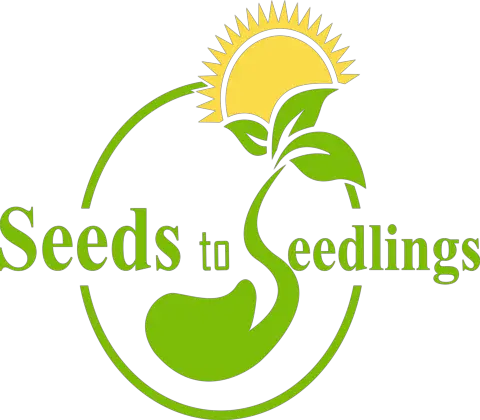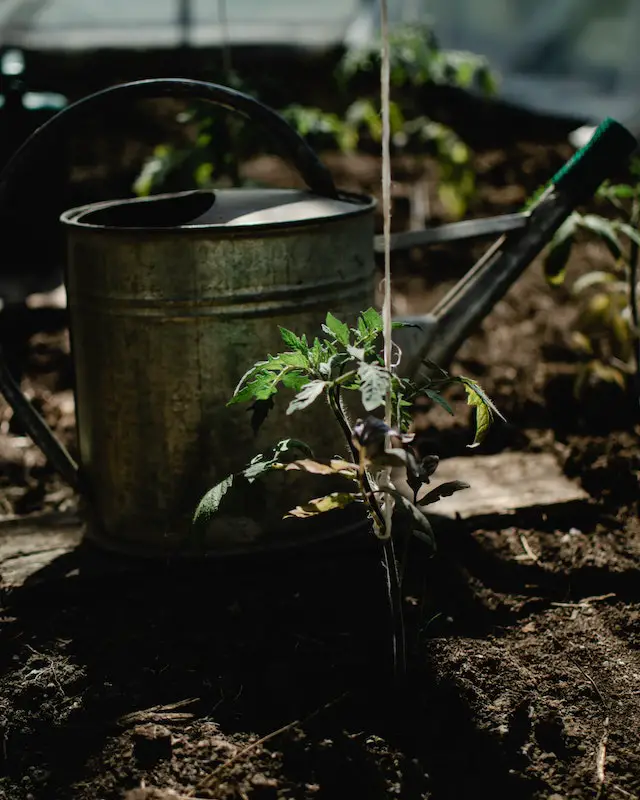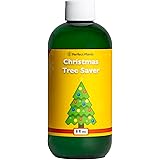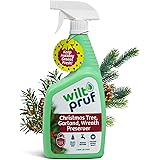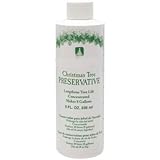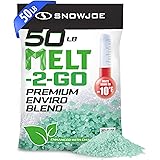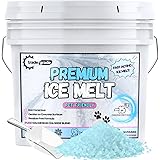Tomato plants are some of the most cherished plants in home gardens around the globe. However, they also tend to be a popular attraction for a variety of pests. When faced with an insect invasion, gardeners often ponder whether to deploy chemical pesticides or seek out natural alternatives.
In this article, we will delve into the world of natural pesticide tomato plants, offering an organic approach to keep your plants healthy and bug-free.
Embrace Natural Pesticides: A Fresh Approach
Firstly, let’s look at why we should prioritize natural pesticides over synthetic alternatives. Chemical pesticides, though effective, can pose risks to humans, pets, and the environment. Furthermore, repeated exposure can lead to pest resistance, requiring stronger chemicals or novel solutions. On the other hand, natural pesticides are safer and more eco-friendly, fostering an environment in line with sustainable agriculture.
The Power of DIY Natural Pesticides
Creating a natural pesticide at home can be a rewarding and effective way to combat pests. Garlic, known for its potent smell, is an excellent deterrent for pests. Blend a few cloves with water, strain it, and spray it on your tomato plants.
Another potent natural pesticide can be made using chili powder or hot peppers. Capsaicin, the compound that gives peppers their heat, is a known pest deterrent. Mix chili powder or hot pepper sauce with water and a bit of dish soap and spray it on your plants for an eco-friendly pest solution.
- A Special Mention: Neem Oil
Neem oil is one of the most popular natural pesticides in the gardening community. It’s derived from the neem tree and is renowned for its effectiveness in controlling various pests, including aphids, beetles, and caterpillars that love to nibble on tomato plants. Its bitter taste and strong smell make it unappealing to pests, keeping your plants safe.
- Companionship and Crop Rotation: Prevention is Better than Cure
In addition to natural pesticides, it’s essential to focus on preventative strategies. Companion planting and crop rotation are two techniques that can greatly reduce the incidence of pests. Plants like marigolds, basil, and nasturtiums are known to repel many of the pests that tomatoes attract. Planting these in close proximity to your tomato plants can keep harmful bugs at bay.
Similarly, crop rotation prevents pests from becoming established in a specific area. Changing what you grow in a particular spot each year disrupts the life cycle of pests and can significantly reduce their populations.
- The Use of Vinegar: Safe for Tomatoes?
Vinegar is an incredibly versatile household product and can act as a natural pesticide. However, care should be taken when using vinegar on tomato plants. While it can deter pests, undiluted vinegar is potent and can harm plants. Always dilute vinegar in a significant amount of water before applying it to your plants.
- Keeping Fungal Diseases at Bay
Fungal diseases can be just as damaging to tomato plants as pests. The use of a fungicide can help protect against this. One of the most recommended natural fungicides for tomato plants is copper spray. It controls a wide range of plant diseases, including blight and leaf spots, which are common in tomato plants.
- Bringing In Biological Controls: The Garden Allies
While it may seem counterintuitive to invite insects into a garden where you’re trying to minimize pests, not all bugs are harmful. Certain predatory insects, known as biological controls, prey on the pests that could damage your tomato plants.
Consider ladybugs, for example. These beetles are notorious for their appetite for aphids, one of the common pests that can wreak havoc on your tomato plants. Similarly, spiders, lacewings, and predatory mites are all beneficial insects that can help control pest populations.
Another helpful creature is the parasitic wasp. Though the name may sound intimidating, these wasps are beneficial to gardeners. They lay their eggs on tomato hornworms and other pests. When the eggs hatch, the larvae consume the host, thereby controlling the population of these harmful pests.
- Harness the Power of Diatomaceous Earth
Another natural pesticide option for tomato plants is diatomaceous earth. Made from the fossilized remains of tiny aquatic organisms known as diatoms, this powdery substance is lethal to insects but harmless to humans and pets.
When insects crawl over the diatomaceous earth, the sharp particles cut through their exoskeletons, causing them to dehydrate and die. Best of all, it remains effective as long as it stays dry, providing long-lasting protection for your tomato plants.
- Enhancing Plant Health: A Strong Plant is the Best Defense
Lastly, it’s essential to remember that a healthy plant is the best defense against pests. Healthy plants are more resistant to pest damage and can recover more quickly if they are attacked.
Regular watering, appropriate fertilization, and proper pruning practices are all key to keeping your tomato plants healthy. Pay close attention to your plants and adjust your care routines as necessary to ensure they remain robust and vibrant.
Frequently Asked Questions (FAQs)
Neem oil is often recommended as the best natural pesticide for tomato plants due to its effectiveness against a wide range of pests.
Aside from using natural pesticides, employing techniques like companion planting, crop rotation, and maintaining a healthy soil ecosystem can protect tomatoes from pests naturally.
A home remedy for spraying tomatoes could involve creating a spray from common kitchen ingredients such as garlic or hot peppers. These are known to deter pests and can be mixed with water and a small amount of dish soap to create a DIY pesticide spray.
Bugs on tomato plants can be deterred or removed using a variety of natural methods. Spraying your plants with homemade natural pesticides, introducing beneficial insects such as ladybugs to your garden, or manually removing the bugs can all be effective strategies.
Vinegar spray can be safe for tomato plants if properly diluted. However, caution should be taken as vinegar is acidic and, if used in high concentrations, can damage plants.
Copper spray is widely considered a top natural fungicide for tomato plants. It controls a wide range of diseases, including blight and leaf spots, which are common issues for tomatoes.
Absolutely! Biological controls, such as ladybugs, spiders, and parasitic wasps, are excellent at controlling pest populations. They’re a natural, pesticide-free way to keep your tomato plants healthy.
Yes, diatomaceous earth is safe for use on tomato plants. It’s a non-toxic, natural substance that’s lethal to insects but safe for plants, humans, and pets.
In Summary
Natural pesticides offer a greener, safer alternative to chemical pesticides. With an understanding of how to effectively harness the power of nature, gardeners can ensure that their tomato plants are protected from pests while maintaining an environment that supports beneficial wildlife and promotes sustainability.
Whether you’re concocting your homemade garlic spray or implementing a strategic companion planting plan, there are plenty of natural ways to protect your tomatoes and enjoy a fruitful harvest.
Conclusion
Growing tomatoes can be a challenging yet rewarding endeavor. Employing a natural approach to pest control not only ensures the health of your plants but also contributes to the broader ecosystem. From homemade sprays to helpful insects, natural pesticide tomato plants practices are a testimony to the power of nature.
So, let’s step back from chemical solutions and embrace these eco-friendly alternatives for a bountiful, delicious tomato harvest.
Auto Amazon Links: No products found.
Perfect Plants Christmas Tree Saver 8oz. | Easy Use Xmas Tree Preserver Food | Have Healthy Green Christmas Trees All Holiday Season
$13.99 (as of January 21, 2026 19:19 GMT +00:00 - More info- Product prices and availability are accurate as of the date/time indicated and are subject to change. Any price and availability information displayed on [relevant Amazon Site(s), as applicable] at the time of purchase will apply to the purchase of this product.
Wilt-Pruf® Christmas Tree/Cutting Preserver Spray |Preserves Christmas Trees, Wreaths, Garlands, Cuttings and Carved Pumpkins | Reduces Needle Drop | Keeps Cut Trees Fresh Longer | Natural (32 oz)
$21.99 (as of January 21, 2026 19:19 GMT +00:00 - More info- Product prices and availability are accurate as of the date/time indicated and are subject to change. Any price and availability information displayed on [relevant Amazon Site(s), as applicable] at the time of purchase will apply to the purchase of this product.
VEVOR Tree Watering Bag Slow Release, 4 Pack 20 Gallons Tree Watering Bags/Ring, Reusable Refillable Tree Irrigation Ring Water Bags, Heavy Duty Watering System for Shrub Tree Root Drip Irrigation
$34.99 (as of January 21, 2026 19:19 GMT +00:00 - More info- Product prices and availability are accurate as of the date/time indicated and are subject to change. Any price and availability information displayed on [relevant Amazon Site(s), as applicable] at the time of purchase will apply to the purchase of this product.
Rocky Mountain Goods Christmas Tree Food - 8 oz Tree Preservative - Reduce Needle Drop - Greener Scent - Fir, Pine, Spruce Trees - Extend Tree Life
$9.95 (as of January 21, 2026 19:19 GMT +00:00 - More info- Product prices and availability are accurate as of the date/time indicated and are subject to change. Any price and availability information displayed on [relevant Amazon Site(s), as applicable] at the time of purchase will apply to the purchase of this product.
HoHoHoH2o Automatic Christmas Tree Watering System Device, Santa’s Tree Helper Keeps Your Christmas Tree Healthy and Fresh, Refillable 2.5 gallons Capacity Box - Silver/Festive
$84.95 (as of January 21, 2026 19:19 GMT +00:00 - More info- Product prices and availability are accurate as of the date/time indicated and are subject to change. Any price and availability information displayed on [relevant Amazon Site(s), as applicable] at the time of purchase will apply to the purchase of this product.
Snow Joe Premium Enviro Blend Ice Melt, Green-Coated Deicer Crystals, 50 lb - Safer Melter for Vegetation, Concrete & Metals w/ Anti-Corrosion Calcium Magnesium Acetate
$35.97 (as of January 29, 2026 13:27 GMT +00:00 - More info- Product prices and availability are accurate as of the date/time indicated and are subject to change. Any price and availability information displayed on [relevant Amazon Site(s), as applicable] at the time of purchase will apply to the purchase of this product.
Wagner's 53002 Farmer's Delight Wild Bird Food with Cherry Flavor, 10-Pound Bag
$12.48 (as of January 29, 2026 13:27 GMT +00:00 - More info- Product prices and availability are accurate as of the date/time indicated and are subject to change. Any price and availability information displayed on [relevant Amazon Site(s), as applicable] at the time of purchase will apply to the purchase of this product.
Maple99 Ice Melt Safer for Concrete-20 lb Bag, Ice Crusher Blend Snow Salt Ice Melt, Salt for Snow and Ice Removal, Sidewalk Salt, Driveway Salt, Snow Melt is Effective Up to -15
$59.99 (as of January 29, 2026 13:27 GMT +00:00 - More info- Product prices and availability are accurate as of the date/time indicated and are subject to change. Any price and availability information displayed on [relevant Amazon Site(s), as applicable] at the time of purchase will apply to the purchase of this product.
Trade Grade Pet-Friendly Ice Melt - Fast Acting Magnesium Chloride Formula, Safer for Pets & Surfaces, 15lb Bucket with Scoop
$45.99 (as of January 29, 2026 13:27 GMT +00:00 - More info- Product prices and availability are accurate as of the date/time indicated and are subject to change. Any price and availability information displayed on [relevant Amazon Site(s), as applicable] at the time of purchase will apply to the purchase of this product.
TERRO Ant Killer Bait Stations T300B - Liquid Bait to Eliminate Ants - Bait System - 12 Count Stations for Effective Indoor Ant Control
$11.97 (as of January 29, 2026 13:27 GMT +00:00 - More info- Product prices and availability are accurate as of the date/time indicated and are subject to change. Any price and availability information displayed on [relevant Amazon Site(s), as applicable] at the time of purchase will apply to the purchase of this product.
